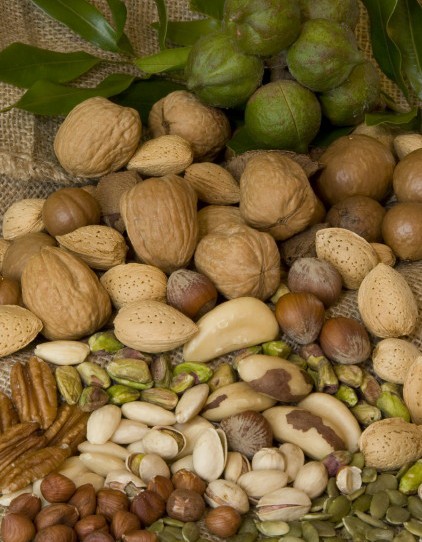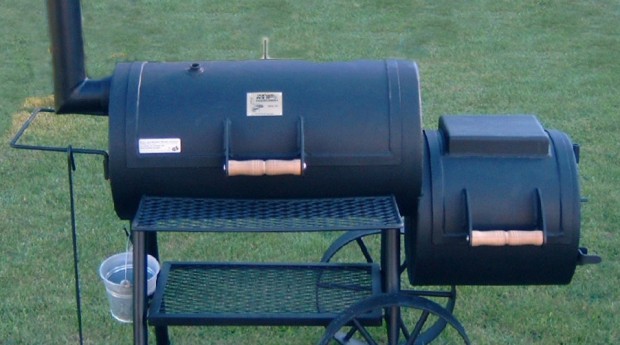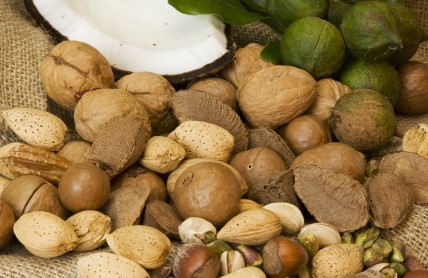Water [Part 1]: The Essence of Life
How Much Water?
Uta’s Daily Fluid Intake

“Water, water, everywhere, nor any drop to drink.” From “The Rime of the Ancient Mariner,” by Samuel Taylor Coleridge, when the Ancient Mariner is adrift in the middle of the sea.
It’s common knowledge that our bodies, like the surface of the earth, are made up largely of water. However, what’s really important to know is that water makes up a remarkable 90% of our lungs, 80% of our blood, and three-quarters of our muscles and brain. Even our bones contain some H2O! Therefore, we simply cannot live—or thrive—without it. In fact, we may be able to survive only a few days without water—although we can go for weeks without food.
Water is critical for many body functions, such as digestion, regulation of body temperature, lubrication of joints, and the circulatory processes that bring nutrients to the cells and transport waste from them. When you get dehydrated, every cell in your body suffers, causing you to feel less fit, putting more stress on your body, and making you more prone to disease. Becoming dehydrated also carries the risk of overheating your body, which can have serious consequences and even be life threatening.
Symptoms of dehydration include dizziness, muscle weakness, low concentration levels, tiredness, and sometimes, an above-normal body temperature. Similar to what happens in an automobile, a poorly working cooling system because of low levels of water in the body can cause overheating, and the inability to operate normally and to sweat. Also, having blood that is more viscous is like having syrup in your veins rather than a thin liquid, a condition that increases the risk of heart attack and stroke.
How Much Water?
One of the most commonly asked questions about hydration is: “How much water am I supposed to drink each day?” Many publications tell us the rule of thumb is about eight cups a day, although there is no scientific evidence for this recommendation(1).At first glance, drinking one cup of water every two hours doesn’t seem to be that difficult. But think about it—is that really what most people do? More importantly, does this “rule of thumb” make sense for you or not?
Suppose you drink the recommended 8 cups of water a day and on top of that add the recommended 2-4 cups of green tea, 1 or 2 cups of the now also-recommended coffee, 10-12 servings of fruits and veggies (which generally consist of 80-95% water), and maybe even a bowl of soup. In doing so, you will have consumed an incredible amount of water.
That’s why we first published the following a few years back: “Eight cups of water is the rule of thumb. But depending on what you eat, how big you are, if you exercise outdoors or live in a hot and humid climate, it’s somewhat less or much more. A 120 lb. woman who works in an air-conditioned office and doesn’t exercise will have problems with 8 cups, while an endurance athlete or someone who otherwise sweats a lot will need twice as much or more. The best advice is to drink small amounts throughout the day and before, during and after exercise or other activities that cause heavy sweating.
People who eat lots of fruit need less water. Fruits contain up to 90% or more water, and some of it can be used to keep your body well hydrated.”(2)
In other words, different foods and beverages contribute to our goal of keeping the body well hydrated—and we should not underestimate the body’s ability to get what it needs from what we consume.
Tip: One of the best ways to know if you are drinking enough is to
make a habit of watching your urine. It might not always be crystal clear or light yellow,
but that is what you should see at least twice per day.
Here’s something else we wrote a long time ago that needs to be revisited and put into perspective: “Always keep in mind that caffeine and alcohol act as diuretics. This is why their consumption requires the intake of extra water. Tip: Watch people in Mediterranean countries. There is not just wine or coffee, but also always water on the table. For every glass of wine or cup of coffee, drink the same amount of water.”
Some new research has been done that has shed even more light on this topic. While it seems to be true that caffeinated and/or alcoholic beverages act as diuretics, their influence on our system differs from person to person. The new research shows that caffeine has at most some mild diuretic effect in people who are not accustomed to it(3). Therefore, those who regularly consume caffeinated drinks or foods, like coffee, tea, certain sodas or chocolate, were not found to have developed a meaningful degree of dehydration. A study published by the American College of Sports Medicine in its Exercise and Sport Sciences Reviews stated that the physiological processes that help prevent dehydration are strong enough to handle the mild diuretic effect of moderate caffeine consumption(4). A recent study published in the Journal of Science and Medicine in Sport also found that caffeine does not lead to an excessive loss of fluids in healthy people.
How about alcohol? Alcohol’s diuretic properties depend on which type and how much is consumed. While beer is a real “long drink,” containing relatively small amounts of alcohol (2-4%), wine has much more (12-14%) and most liquors top both with up to 50% or more. Again, common sense tells us that people who prefer the “hard stuff” will be more in danger of getting dehydrated because their drink comes with a very small amount of fluid. In contrast, with beer, the same amount of alcohol is packed in 10-20 times more water.
Taking the new research into account, we suggest the following altered recommendation:
In order to stay well hydrated, the body has the ability to extract water from many food and drink sources. Make sure clean water (preferably filtered and ozonated), teas, and high-water-content food like fruits and vegetables are all part of your nutritional program. Consider fresh vegetable juices and diluted fresh fruit juices as a highly recommended healthy addition. Furthermore, have a glass of water for every glass of wine or liquor.
How much water the body needs to extract from food and beverages for its metabolic needs each day is not exactly known and will vary from person to person. Because the body is always dehydrated following sleep due to normal metabolic processes, sweating and the insensible water loss(5, 6) from the skin and the respiratory tract, it is a good idea to drink 1-2 cups of water, preferably with some lemon, the first thing in the morning. Throughout the remaining part of the day, keep drinking small amounts of fluids to ensure proper hydration.
Uta’s Daily Fluid Intake
Uta makes sure that she is well hydrated. Her daily routine includes pure water, herbal teas, sport drinks, and freshly squeezed vegetable and fruit juices. Because pure fruit juices may contain too much sugar, she mixes them with equal parts of water. To make sure she is well hydrated before eating anything in the morning, she has one or two glasses of water mixed with a little fresh squeezed lemon juice right after getting up. Uta also likes to drink green tea, mixed with other herbs, and Mango or Jasmine teas (her favorites!), both of which contain very little caffeine. Occasionally, she also drinks black tea (either caffeinated or caffeine-free), cappuccino, or even enjoys a glass of wine with her friends.
Generally on most days Uta consumes the same amount of fluids. However, on days with increased physical activity, she makes certain to drink before, during, and after her training. Depending on the weather and intensity of training, that can be another one to two liters.
Which Water Should You Drink?
There are so many different waters available today: Ozonated, home-purified, tap, bottled, to name a few. Because all these waters are not created equally, we have shed some light on this subject in the article “Water [Part 2]: Navigating Your Drinking Water” to help you decide which water is right for you.
We hope the information and suggestions in this article will help you stay well hydrated! Within these ground rules, we encourage you to experiment to find out how much water your own body needs on any given day.
Reading Suggestions:
- Explore proper hydration and a few thoughts on summer nutrition: “Summertime Fitness: Part II“
- “Uta’s Summary for Your Marathon Preparation. Part III: Nutrition“
References:
(1) Valtin H: Invited Review: “Drink at least eight glasses of water a day.” Really? Is there scientific evidence for “8×8”? American Journal of Physiology – Regulatory, Integrative and Comparative Physiology, 2002; 283:993-1004.
(2) University of Maryland: Medical Center: Medical Reference: Encyclopedia: Water in diet—Food Sources. www.umm.edu/ency/article/002471fod.htm, August 2009.
(3) Kendall P (Colorado State University): The effects of caffeine on hydration and bone loss. www.news.colostate.edu/Release/394, November 2003.
(4) Lawrence E. Armstrong, Douglas J. Casa, Carl M. Maresh, Matthew S. Ganio: Caffeine, Fluid-Electrolyte Balance, Temperature Regulation, and Exercise-Heat Tolerance. Exercise and Sport Sciences Reviews, retrieved August 2016.
(5) Anaesthesia Education Website: Insensible Water Loss. www.anaesthesiamcq.com/FluidBook/fl3_2.php, retrieved March 2012.
(6) Weissenberg S: Insensible Water Loss During Sleep: A Theoretical Exercise. Advances in Physiology Education, 2005; 29:213-215.
Update August 19, 2016
Updated May 28, 2015
Updated June 10, 2013
Updated December 11, 2009
Posted October 2007
- Posted June 10, 2013
© Copyright 2007-2024 by Take The Magic Step®. All Rights Reserved.




